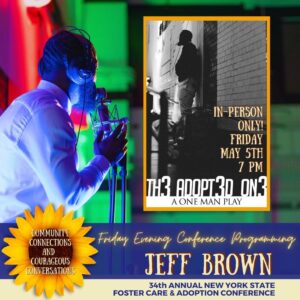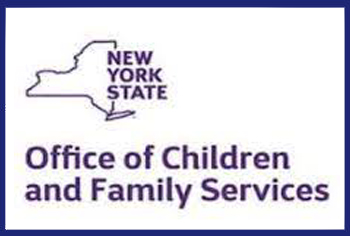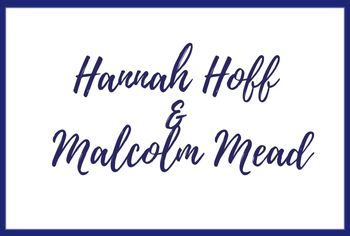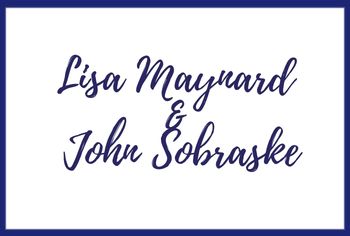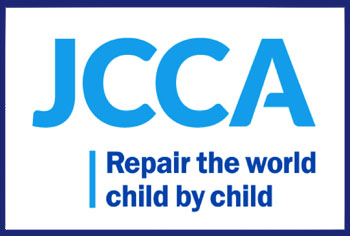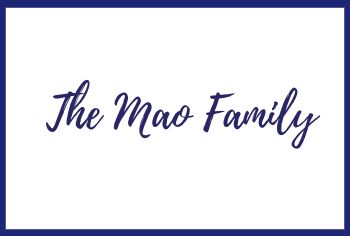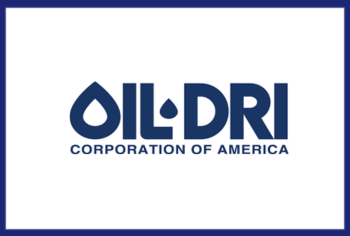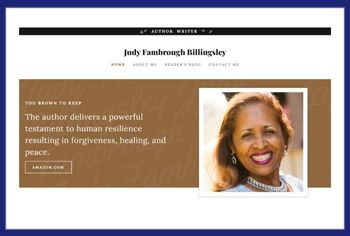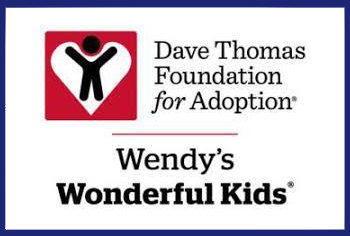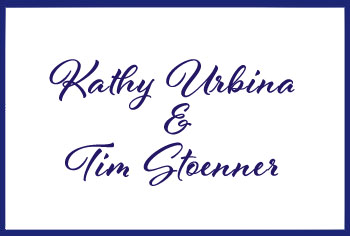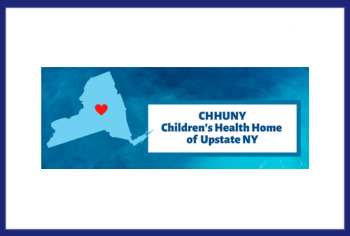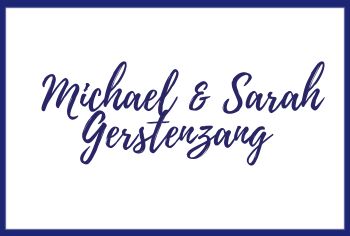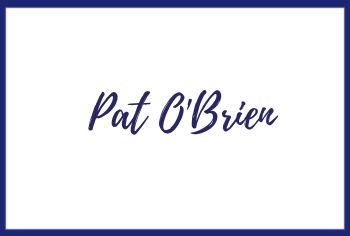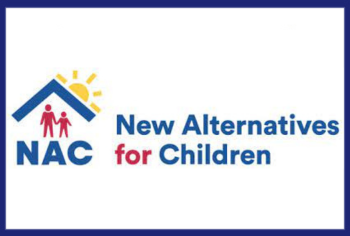Conference Schedule at a Glance
FRIDAY MAY 5th
Late Registration, Check -in, & Breakfast 8:00 AM
Conference Opening & Welcome 9:30 – 10:00 AM
Keynote 1: Dr. Stacey Patton 10:00 – 11:30 AM
Workshop Session 1 12:00 – 1:15 PM
Lunch Break 1:15 – 2:15 PM
Workshop Session 2 2:15 – 3:30 PM
Workshop Session 3 3:45 – 5:00 PM
Dinner Break (on your own) 5:00 – 7:00 PM
Evening Event: Th3 Adopt3d On3 7:00 – 8:30 PM
SATURDAY MAY 6th
Registration & Breakfast 8:30 – 10:00 AM
Keynote 2: Stephanie Foo 10:00 – 11:30 AM
Workshop Session 4 12:00 – 1:15 PM
Lunch Break 1:15 – 2:00 PM
Workshop Session 5 2:00-3:15 PM
Workshop Session 6 3:30-4:45 PM
Conference Evaluations & Farewell 4:45 PM
PLUS! Extended Virtual Conference Programming
on Friday, May 12th & Friday, June 9th
Full Conference Schedule of Events
In-Person Conference · Friday, May 5th
Registration, Check-in & Breakfast
8:30-10:00 AM
Opening and Welcome
9:30-10:00 AM
Join Coalition Executive Director, Pat O’Brien and start the morning off right! We have the honor of NFPA Director, Arnold Eby, joining us to kick off the Conference! Arnold (Arnie) is known as ‘Mr. Arnold’ to over 130 children in foster care that joined the Eby family over the years and is now the new director of the National; Foster Parent Association (NFPA)!
Keynote Presentation 10:00 – 11:30 AM
2023 Keynote Speaker, Dr. Stacey Patton presents:
“How Not to Love an Adopted Child”
Adoptee, child abuse survivor, and former foster youth turned award-winning author, journalist and child advocate and author of Spare the Kids: Why Whupping Children Won’t Save Black America will present our Friday keynote address. Dr. Patton will walk us though the issues that plague our current child welfare systems – racial disparities in child abuse cases, criminal prosecutions for child abuse, repeat, harmful foster care placements, the over prescribing of psychotropic medications to children of color in foster care, the school- and foster care-to-prison pipelines, corporal punishment in public schools, diversion and restorative justice programs – though the lens of her own journey as a child in care.
Workshop Breakout Session 1 12:00 – 1:15 PM
1A: Spare the Kids: Why Whupping Children Won’t Save Black America
Dr. Stacey Patton
Why do so many African Americans have such a special attachment to whupping children? Studies show that nearly 80 percent of black parents see spanking, popping, pinching, and beating as reasonable, effective ways to teach respect and to protect black children from the streets, incarceration, encounters with racism, or worse. However, the consequences of this widely accepted approach to child-rearing are far-reaching and seldom discussed. Dr. Stacey Patton’s extensive research suggests that corporal punishment is a crucial factor in explaining why black folks are subject to disproportionately higher rates of school suspensions and expulsions, criminal prosecutions, improper mental health diagnoses, child abuse cases, and foster care placements, which too often funnel abused and traumatized children into the prison system.
1B: Media, Myths and the Adoption Movement: Shaping our Stories Responsibly
John Sobraske
Media has not always been an adequate means to convey the stories of adoption, sometimes generating more myths than realities. This workshop explores how media can shape (and distort) adoption narratives. The activist movement in adoption has attempted to correct this, but has faced some unique challenges as a movement over time. Finally, an attempt is being made to bring contemporary sensibilities and respect to the perspective from various vantage points within the adoption constellation, including questions of privacy.
Lunch Break
1:15 – 2:15 PM
Workshop Breakout Session 2 2:15 – 3:30 PM
2A: Health, Well-Being & Adoptee Connections in Adulthood: Mapping the lifecourse of Adoption Project (MAP)
Dr. Hollee McGinnis
Adoptee led groups / spaces and organizing began in earnest in the 1970s and continues to the present; however, little scholarship has examined the nature of adoptee led groups/spaces and how they may relate to adoptees’ well-being in adulthood. Furthermore, the majority of research on adopted individuals focuses on childhood, adolescence, or early adulthood (i.e. 20s) with little research exploring how adverse childhood experiences, adoption related loss and racial/ethnic discrimination, affect the mental health, physical health, and well-being of adoptees later on in life. To address these gaps in knowledge, “Mapping the lifecourse of Adoption Project” (MAP) was launched. The purpose of this presentation is to provide an overview of this project including: (1) rational for this project; (2) a brief history of adoptee-led groups and organizations; (3) and theoretical and empirical literature on adoptee led groups/spaces informing this project;(4) and how to get involved in this project and intended impact of this project to transform the field of adoption practice and policies.
2B: Building a Bridge: Stories About Connections Between Parents and Foster Parents
Jeanette Vega Brown, Shanene Bryant & Cassandra Gonzalez
Rise is an advocacy organization in New York City dedicated to building the power of parents affected by the family policing system. This workshop consists of a panel of impacted parents whose rights were terminated through the child welfare system. Panelists will be sharing with the audience the series of circumstances that lead up to losing their children to the child welfare system, their struggles from within and their experiences of life after the termination of parental rights. It is the panelists’ goal to make foster and adoptive parents more empathic and understanding toward their childrens’ original parents and families and bridge the gap between both parties for the betterment of the children involved.
Workshop Breakout Session 3 3:45 – 5:00 PM
3A: Reimagining New York State Kinship Foster Home Approval Standards
NYS Office of Children and Family Services; Alexis Arnett, Heather Girard & Naomi Schultz
OCFS seeks to hold kinship foster parent focus groups to explore federally proposed rule changes that would allow states to establish alternative standards for kinship foster boarding homes. The Administration for Children and Families (ACF) recently released a Notice of Proposed Rulemaking to revise the definition of a foster family home to allow Title IV-E agencies to adopt standards for kinship foster family homes (relative and fictive kin) that differ from non-relative foster family home standards. OCFS seeks to solicit the view of kinship foster families on the state’s response to the expected adoption of the proposed regulations.
The workshop will open with an overview of the current state foster home approval standards and the federal proposed rule. After the introduction, participants will split into different groups where they will provide input regarding the current foster home approval requirements. Each table will discuss various aspects of the home study process, including specific requirements that present barriers, those they found helpful, and any changes that would best support kinship foster homes and the children they serve. Time will be reserved to report out from the different tables and allow for full group discussion. The feedback collected will provide valuable input on how OCFS can best implement changes to kinship foster home approval standards, and to support kin friendly policies and practices.
3B: Raising Voices: Themes From a Group of Emerging Adult Adoptees
Nancy Solow & Alexandra Pisano-Stratton
This workshop will explore themes that emerged from leading a group of 17-20 year old adoptees. Themes relating to: the influence of both perfectionism and “badness,” divided loyalties and divided self, what hides beneath the surface, and what young adults need as they cross the chasm between childhood and adulthood. Participants will hear a description of the workshop with these young adults, including direct quotes, reflect on their own transition to adulthood and what was needed at that time, and have opportunity for question and answer. While the Raising Voices workshop was focused on the transition to adulthood, or emerging adulthood period, it would be useful for parents of young children to hear about the challenges of this time, so they can address their childrens’ needs in advance and know what this transition can look like and why.
Dinner Break 5:00 – 7:00 PM
While several of the CIA’s student run restaurants are within walking distance of Marriott Pavillion, it is strongly recommended that reservations are made for your intended seating as soon as possible. Off CIA campus there are quite a few additional dining options right on Route 9.
Friday Evening Live Event 7:00 – 8:30 PM
The Adoptive and Foster Family Coalition of New York is thrilled to host the incredible Jeff Brown in his one man play:
Th3 Adopt3d On3
Writer, producer, performer, advocate, Jeffrey Brown is the real life story and creative force behind Th3 Adopt3d On3. A powerful one man play, exposing the complexities and struggles of a young black man in the foster care system, through his adoption at age 13 and beyond.
Join us at the IN-PERSON EVENT for this incredible experience!
Please note, the Friday Evening Programming will NOT be cast virtually nor recorded.
Conference · Saturday, May 6th
Registration, Check-in & Breakfast
8:30-10:00 AM
Keynote Presentation 10:00 – 11:30 AM
2023 Keynote Speaker: Stephanie Foo:
“What My Bones Know: Healing from Complex Trauma”
By age thirty, Stephanie Foo was successful on paper, but behind her office door, she was having panic attacks and sobbing at her desk every morning. After years of questioning what was wrong with herself, she was diagnosed with complex PTSD—a condition that occurs when trauma happens continuously, over the course of years. The impact of both of Foo’s parents abandoning her when she was a teenager, after years of physical and verbal abuse and neglect, continuing to threaten her health, relationships, and career. She found limited resources to help her, so Foo set out to heal herself, and to map her experiences onto the scarce literature about C-PTSD and to reclaim agency from her trauma.
Workshop Breakout Session 4 12:00 – 1:15 PM
4A: You Can Do It Too
Sarah Gerstenzang & Chester Jackson
What are the key elements from What My Bones Know that will help parents with their children who have experienced trauma? Whether you have had a chance to read the book or not, please join us to discuss key moments in the therapy audio recordings between Stephanie and her therapist that are relevant to shifts in the emotional well being of children.
4B: Common Legalities: Fostering Understanding of Legal Rights in Child Welfare
Megan O’Leary
Foster parents often find themselves as the only stakeholders in child welfare proceedings without representation and unaware of their rights or how to enforce them. This workshop will focus on the rights of foster parents and enforcement options from an individual, administrative level to current class action litigation. We will take a look at how a better understanding of the legal systems and better representation for foster parents can lead to better outcomes for the children and families. Bring your questions!
Lunch Break
1:15 – 2:00PM
Workshop Breakout Session 5 2:00 – 3:15 PM
5A: FASD: The Silent Epidemic
Rebecca Tillou & Sandra Flach
This workshop will discuss the silent epidemic of FASDs. Attendees will learn statistics and discuss how to move forward with lessening the stigma around FASDs. Attendees will be introduced to the impact of prenatal alcohol exposure on a developing fetus. They will learn to identify FASD as a brain-based physical condition with behavioral symptoms. Primary, Secondary & Tertiary characteristics of FASD will be discussed. Attendees will be introduced to the paradigm shift of thinking “brain” instead of behavior. Starter strategies for learning to provide accommodations and supports for individuals prenatally exposed to alcohol will be presented. Early diagnosis is key to lessening the stigma and leads to educational and social success. FASDs can, then, be seen as strengths, not difficulties.
5B: Adolescent Adoptive Relationships: Addressing Loss & Building Attachment
Amy Geller
Building a family through adoption can be a loving solution that addresses the needs of all members of the kinship network. The roots of the adoptive family tree, however, germinate from the complex soil of loss. This is true for birthmothers, adoptees and, often, for adoptive moms too. Acknowledging this parallel loss together can be a useful bridge in building a satisfying and trusting bond in the family. It can also light the path for healthy integration of all members of the kinship network into the narrative. This presentation will explore the multi-faceted role of ambiguous loss and disenfranchised grief in adoption and how addressing these unresolved feelings can allow pathways of connection to blossom.
Workshop Breakout Session 6 3:30 – 4:45 PM
6A: Foster Care, Adoption & The Educational System: Bridging The Gap
Kim Diaz & Jake Stomieroski
Understanding the CSE (Committee on Special Education)/IEP (Individualized Education Plan) process. Attendees will earn practical information and educational procedural and advocacy techniques that will help strengthen relationship bonds among parents, professional staff, and the school team who are working with an individual student and his/her particular needs. They will explore the attributes of effective roles of all CSE participants and process expectations, learn effective guidelines that will support IEP development and parent and school staff communication, while incorporating desirable and attainable goals for the student. Our goal is to help anyone who needs our assistance and knowledge in the world of education, with our focus on special education, and the CSE/IEP process and overall experience.
6B: The Adoptee Experience: Please Don’t Touch Our Private Parts
Annette O’Connell, Chester Jackson and Jessica M. Luciere
The adoptee experience is not understood or discussed enough among non-adopted people; when it is, the voice of the actual adopted person is usually left out. Many times, adoptees feel most comfortable discussing these things with other adopted people who “get it” on an intrinsic level. Genuine discussions like this can take a great deal of emotional labor for the adoptee. The conversations can, also, be triggering, offensive, and off-putting to non-adopted people. This discussion, among adopted people who also work in the field, will give attendees an opportunity to have a front row seat. Participants will have the opportunity to engage with the panel in real time and join in the conversation.
Conference Evaluations & Farewell
4:45 PM
Virtual Workshop Sessions 7A & 7B on Friday May 12th from 10:00 – 11:15 AM
7A: Use of Self: The Impact on Your Families and Yourself
Samantha Fuhrman, Renee Hettich & Trudy Kent
The Coalition was founded by adoptive parents to support adoptive parents. Now, over 40 years later, the Coalition still strongly believes peer support is key to improving the welfare of foster, kinship and adoptive families. The Coalition is committed to supporting families with persons of lived experience (that is you!). This workshop will explore the use of your lived experience with foster, kinship, and adoptive families to improve their well-being. The workshop will define “use of self”, give you the tools to effectively use your lived experience with families, speak to the potential pitfalls of using your stories, and explore ways to ensure your well-being while you share a piece of your family with others. The workshop will have a brief presentation of concepts and then provide you an opportunity to analyze real-life scenarios and discuss questions to consider when using yourself in your work with families.
7B: Unraveling Addiction and Adoption
Beth Syverson
What does adoption have to do with addiction? Well, 43% more adopted people have a substance use disorder in their lifetime compared to their non-adopted peers. That is a huge number! If I had known that when I adopted my son, I would have been much more alert and prepared when he hit adolescence. As it was, I was blindsided by his substance use and didn’t realize he was involved with drugs until he was strongly addicted. In this workshop, I will share our family’s struggle with addiction, which started 4 years ago; how my son’s drug usage numbs his primal wound and how my son and I have kept a positive relationship through it all.
Virtual Workshop Sessions 8A & 8B on Friday May 12th from 12:00 – 1:15 PM
8A: Why Don’t Typical Behavior Strategies Work for My Child: Is it Sensory or is it Behavior?
Dr. Yvonne Swinth & Samantha Reed
Many children who have experienced trauma, who have been exposed to drugs/alcohol in utero, or who have a diagnosis such as ADD/ADHD or Autism Spectrum Disorder have unique developmental and behavioral needs as a result of sensory challenges. Many children from hard places, including foster and foster-adopt children have challenges with sensory-processing. Often these sensory processing challenges present as behavior challenges for these children. Addressing these needs can support positive changes in behavior and is essential for social interactions, school participation, and participation in home routines. This session is designed to provide an overview of sensory processing, help participants recognize behaviors that may be a result of sensory processing challenges, and present some practical strategies families can use to address sensory-processing needs in the home, school and community.
8B: Navigating the System After Adoption, Kinship Guardianship and Foster Care
Shantell Lewis
Foster care to adoption and kingap are the most common pathways to a child reaching permanency. Generally, the hope and expectation is that these children and their families will thrive mentally, physically, and emotionally without further state involvement, yet it’s not always permanent as anticipated. The Law Center for Children, an organization currently working on broken adoptions -Broken Adoption projects (BAP), observed that children adopted through foster care were returning through family courts. Broken adoptions are a huge concern in New York City. It’s important to highlight that this session is not to take away from the importance of adoption and kingap. This session is to bring awareness of some issues that families may encounter. In addition, this will provide some insight and examples of solutions that both families and professionals may utilize in these situations. The goal is to help families stay intact, avoid any disruptions, enhance problem-solving and provide valuable resources and tips. In this session we will focus on uncovering systemic issues that may impact an adoptive or kingap family and ways to navigate the system so that families can better help themselves.
Virtual Workshop Session 9 on Friday May 12th from 2:00 – 3:15 PM
9: Becoming Black: Identity Development & Transracial Adoption
Dr. Abigail Hasberry
The adoption institution has historically centered the voices of the adoptive parents, highlighting a savior experience. However, this narrative often does not represent the adoptee experience, and may even be counter or harmful to adoptees. In this informative session, Dr. Abby Hasberry, transracial adoptee, birth mother, educator, author, and therapist centers the adoptee narrative and takes deeper dive in transracial adoption and identity development. Sharing parts of her personal story and using her research on identity development, her experience as a trauma-informed therapist, and research from the field of adoption, Abby breaks down the process of forming a racial identity as a Black transracial adoptee separated from racial mirrors and Black history and culture. This session uses an intersectional lens to examine identity development, trauma, the adoption industry, and healing.
Virtual Workshop Session 10 on Friday May 12th from 7:00 – 8:30 PM
10: Healing Yourself to Heal Your Child
Emily Collins, KimAlysha Seligmiller, Nia Potter & Nyamekye Reynolds
This workshop will encourage caretakers to consider the question: What do you, as a caretaker, bring to the relationship with your child? Workshop facilitators will engage caretakers in the courageous conversation of looking at how our own histories and expectations can impact our relationships with our children, how to notice when these things start getting in the way, and what we can do about it. Facilitators will suggest that foster/adoptive parenting often reveals our own wounds, and, while that can be uncomfortable, it also offers the opportunity to begin healing ourselves.
Virtual Workshop Session 11 A & 11B on Friday June 9th from 10:00 – 11:15 AM
11A: Survivor to Thriver
Cordelia Cranshaw Skeete
Survivor to Thriver (STT) is a framework for young adults (14+) who are currently in or who have previously experienced the foster care system. STT provides a 7-step guide to ensure participants increase their ability to build healthy relationships and heal from their trauma. The interactive modules provide participants with an extrapolating illustration of how I used strategies, coping skills, and practices to find my own pathway to success.
The audience will be introduced to this framework during the presentation and will have the opportunity to discuss the critical issues addressed in Survivor to Thriver which include healing from trauma, building relationships, and preparing for adulthood.
11B: Post-Permanency Support Services Discussion
Alan Yu, Evelyn Ankoma , Samantha Callaghan, Melissa Holiday and Kassandra Rivera
What are ways that these other parts of the child welfare system can assist with post-permanency services? What shows that post-permanency services are so necessary in today’s child welfare landscape? What is the single biggest challenge families face post-permanency? Join us to discuss the answers to these question and so much more.
Virtual Workshop Sessions 12A & 12B on Friday June 9th from 12:00 – 1:15 PM
12A: Improving Education for Young People in Foster Care in New York State: Listening to Those with Lived Experience
Chantal Hinds
In New York State, students in foster care face enormous educational odds. Statewide, during the 2021-2022 school year, only 51% of students in foster care graduated high school in four years (as compared to an 87% graduation rate for students not in foster care). Additionally, according to available data, during the 2018-2019 school year only 17 percent of 3rd through 5th graders who sat for the ELA exam scored a proficient grade—only 16 percent scored a proficient grade in math. While educational outcomes for young people in foster care are challenging, the overall life outcomes for children in care are too. Studies have revealed increased rates of incarceration, homelessness, and mental health challenges among this population, but it doesn’t have to be this way. A supportive education can help improve both educational and life outcomes for young people with foster care experience.
This workshop will share new policy research conducted by Chantal Hinds with over 75 participants with lived foster care experience in New York State. Participants included current and former foster youth and young adults, parents, adoptive parents, and foster parents. Participants shared their school and foster care experiences and provided recommendations for how our schools, agencies, and counties can provide more support to help foster youth achieve their educational goals.
12B: Raising the Grandchildren: What I Thought I Knew as a Therapist Until it Happened to Me.
Michael McCay
The workshop will contain the personal experience of the presenter in being a caregiver to a child who has lost his parents as caregivers. It will address the challenges the presenter faced in being the parent of a child who lost his parents and talk about specific experiences that were difficult. These difficult experiences helped the presenter to be a better parent. It also talks about what the presenter had learned as a family therapist working with adopted/foster children and the strategies that worked and didn’t work in raising a child who was adopted. Also included is the topic of attachment: how it works, what goes wrong in attachment, how that impacts children and how to effectively help children who have been adopted.
BONUS! Workshop Session on Friday May 12th from 2:00 – 3:15 PM
Foster Blessings and Fostering Hope; Foster Care, Adoption and Supporting All of the Players
Angela Paganelli & Rachel Doyle
Not everyone is able to foster or adopt children, but everyone can play a role in supporting the families who do. Foster Blessings and Fostering Hope Together give the practical ways for the community to come alongside the families in their community who are standing in the gap for venerable children.
The Final Virtual Workshop Sessions on Friday June 9th from 7:00 – 8:30 PM
Courageous Conversations to Lead the Way Toward True Openness
Sara Easterly, Lori Holden & Kelsey Vander Vliet Ranyard
Openness in adoption is about much more than contact between two sets of parents and opening access to birth records in all 50 states. It’s about the state of mind from which we form our adoption policies and practices, including an openness to others’ perspectives. Openness is needed in families formed through adoption, and it’s also important for those of us working toward adoption reform, where “reaching across the aisle” and working together is the path to true openness.
Adoptee Sara Easterly, birth parent Kelsey Vander Vliet Ranyard, and adoptive parent Lori Holden have been collaborating together for the last two years on articles, a podcast, and a forthcoming book, Adoption Unfiltered (Rowman & Littlefield, November 2023). Together, they have not only created ground-breaking work, but they’ve also built friendship and learned to rely upon each other in ways they never had imagined at the start of their working relationship. In this session, they’ll share the highlights of what they learned in their process, ways they’ve healed and grown in their respective adoption journeys, and why they recommend others engage in similar configurations and offer suggestions for doing so.
Healing comes from understanding the hurts for adoptees, birth parents, and even adoptive parents. Across the industry, misinformed and even unethical practices abound. That the way we’re going about adoption isn’t working, and it’s high time for significant course corrections. True change can happen when adults in adoption work together in the spirit of curiosity and empathy—to learn and do better for future generations of adoptees and their first and adoptive families.
Las Estrellas (The Stars): The Building of an Adoptee Community and Our Lived Experiences
Angela Sharp, José (aka Joshua) Stark, Carolina Khan, Rebecca Fiore & Kat Geng.
Las Estrellas, is a self-formed group of transracial adoptees who live in and around New York City with a Latin American cultural background and have been raised in, predominantly, white families throughout the U.S. Formed in the Summer of 2022, Las Estrellas, communicates through a shared Whatsapp group where they have gained support by asking questions, creating invites to connect in person, and also sharing things that we realize only other adoptees might understand, have insight on and who speak the adoption language.
In this round table presentation, we will hear from several participants of Las Estrellas about their lived experiences as transracial adoptees as well as what community building within the adoption community looks like for each of us. We all are on different paths: some of us are in reunion with their first families while some are not, different age groups are represented as well as different Latin American Backgrounds (Colombia, Ecuador, Honduras, Puerto Rico, Paraguay). Some of the lived experiences we will cover as a group in this roundtable will include discussion about normalizing one’s adoptee experience, the value of having an adoptee community vs not having one, mental health side of adoption, and representation. There will be time after the roundtable for the audience to ask questions.
The Adoptive and Foster Family Coalition of New York extends our heartfelt gratitude and appreciation to our most generous



